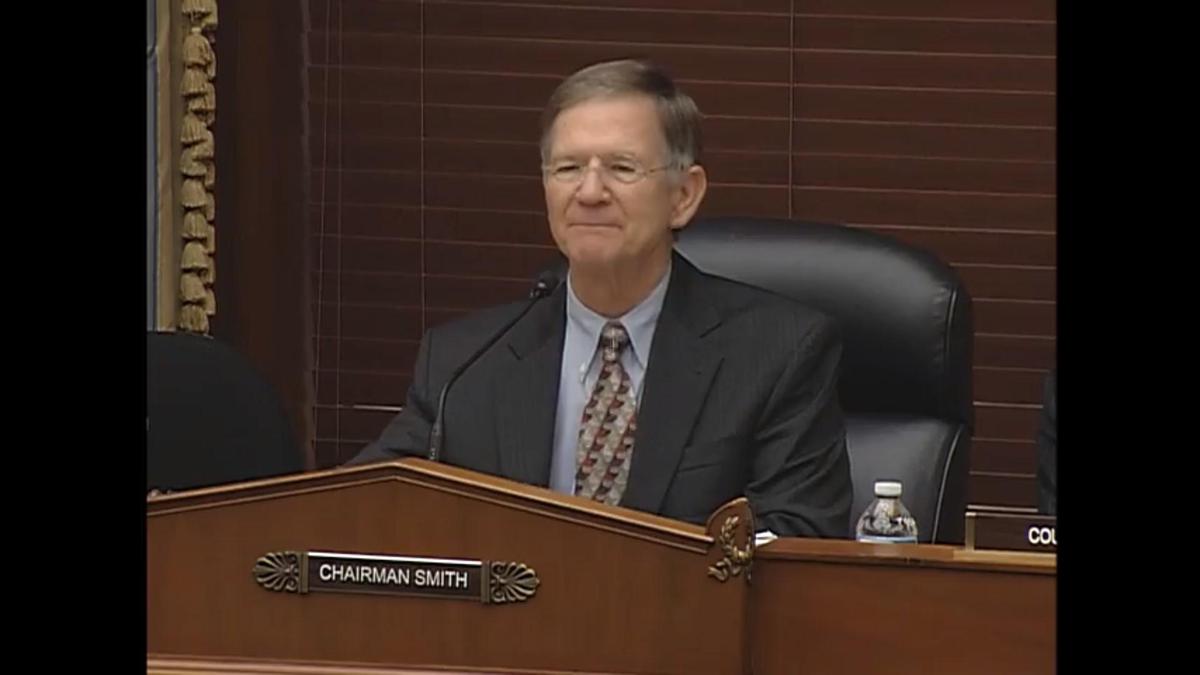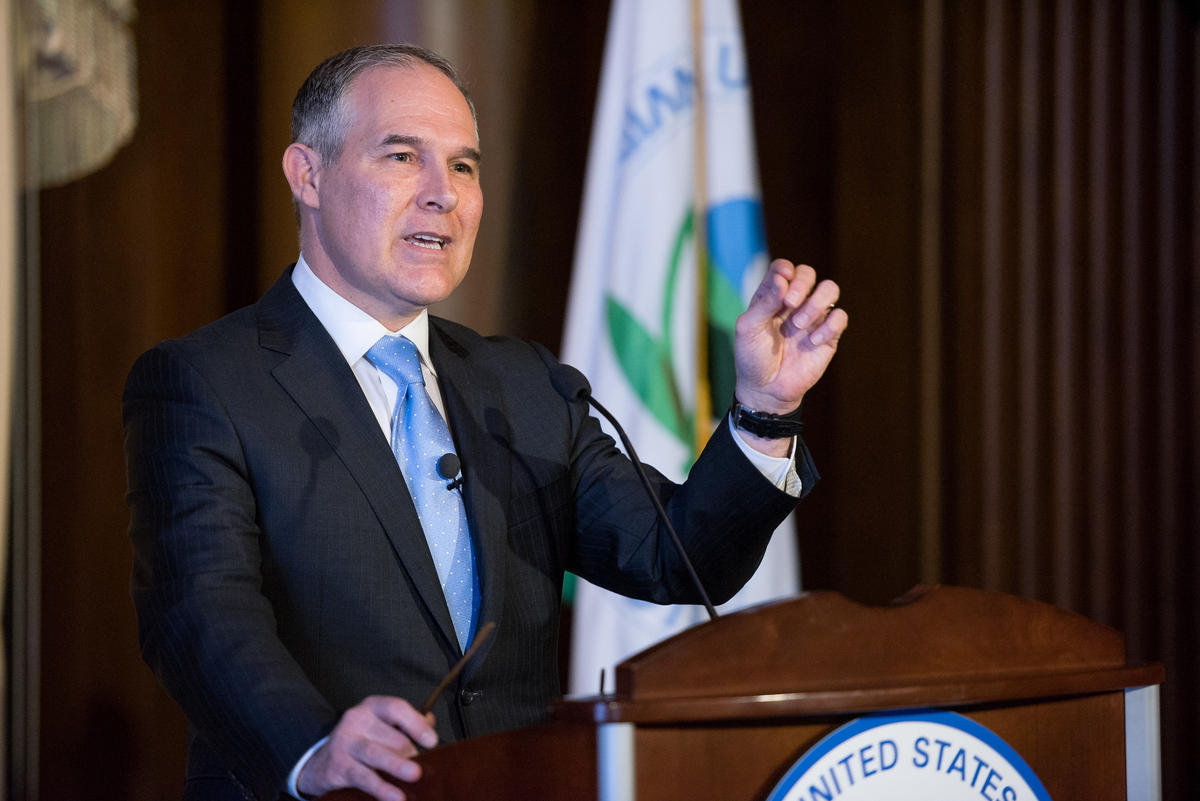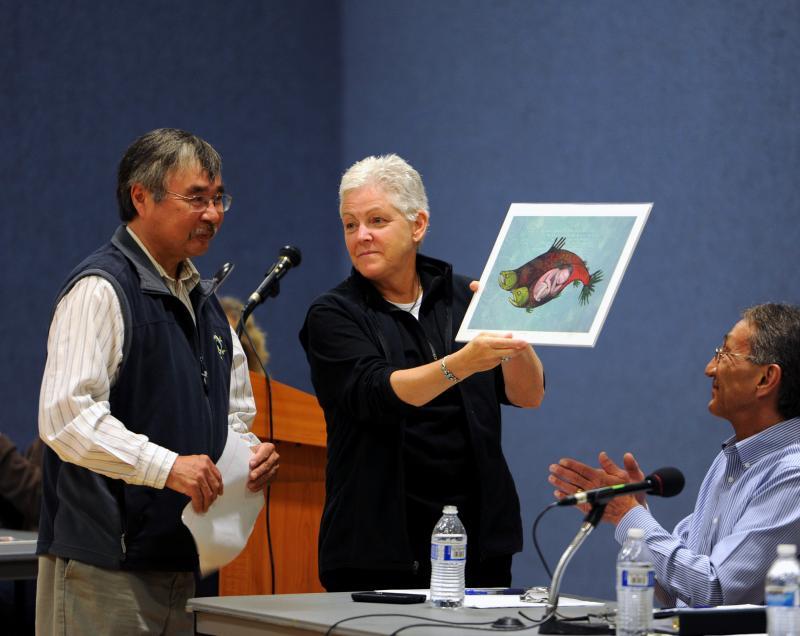
(US Congress)
In a letter Wednesday to new EPA Administrator Scott Pruitt, the chairman of the House Science Committee asked that the agency rescind its 2014 veto of the Pebble Mine. EPA proposed the preemptive Clean Water Act restrictions based on findings from its Bristol Bay Watershed Assessment, and did so with the support of many area tribes, fishermen, and environmental groups. But others say EPA has created an unfair regulatory process not based on rule of law, and are likely to find a receptive audience with the new administration.
Texas Republican Rep. Lamar Smith has made the agency’s work in Bristol Bay a top priority of the oversight committee he chairs. Over the past several years, House Science held a number of meetings, deposed witnesses, and reviewed hundreds of pages of documents and emails, leaving Smith with the firm opinion that the agency acted improperly.
“In the course of the Committee’s investigation, we discovered that EPA employees colluded with third-party Pebble Mine opponents,” Smith said last April. “They sought to deliberately establish a record that pointed to one outcome: that Pebble Mine will be excluded from the regular permitting process and should be stopped.”
In his letter to Administrator Pruitt, Smith called EPA’s 2014 preemptive veto “unprecedented,” “biased” and based on “questionable” science. He wrote that allowing it to stand will create a “dangerous precedent of expansive federal agency powers.”
“This Committee should support due process, protect the permitting process, and insist that EPA actions be based on objective science,” Smith said during April hearing. “The EPA violated all of these tenets in its evaluation of the Pebble Mine. The Committee should not allow EPA to stop projects before they even apply for a permit. This would be contrary to the rule of law and the principles of scientific analysis.”
Smith called on Pruitt to rescind the restrictions, which have not yet been finalized. A federal judge put a hold on the agency’s work surrounding Pebble and the Bristol Bay Watershed Assessment while one of Pebble’s several lawsuits against EPA is litigated.

(Environmental Protection Agency)
Scott Pruitt is the former Attorney General of Oklahoma, and made a name for himself as a fierce critic of EPA. In a speech to his new staff Tuesday he laid out three principles he intends to lead the agency towards: following the rule of law, keeping the regulatory process fair, and working better with states.
“I read those things with a happy heart, and I think that they bode well for a decision that will reverse what the existing EPA has done, and allow us to go into permitting,” Pebble CEO Tom Collier said recently of Pruitt’s previously stated principles. “Some people think that this dispute we’ve been having with EPA is over whether or not we can build the project. I can’t emphasize enough that it is simply over whether or not we can file a permit application.”
But Pruitt has also stressed he intends to lead by listening, and wants to encourage rigorous debate on contentious environmental issues.
“We ought to be able to get together and wrestle through some very difficult issues, and do so in a civil manner,” Pruitt said in his speech Tuesday. “We ought to be able to be thoughtful, and exchange ideas, and engage in debate, and make sure that we do find answers to these problems. But do so with civility.”
Bristol Bay and Pebble opponents have long and loudly voiced concerns, drawing growing attention to the potential threat to one of the world’s last great salmon habitats. Since launching its watershed assessment six or seven years ago, top EPA officials have held more than two dozen public hearings in Bristol Bay, around Alaska, and in Seattle and Washington D.C., and taken in a mountain of public comments. Most of the testimony heard and comments received have been supportive of the agency’s work.

Kim Williams, the director Nunamta Aulukestai, said Pebble’s opposition will make sure the new administration hears the same message Obama did.
“We’ll continue to speak out to President Trump and the Administrator, to reaffirm that this project will need a permit, and this region is opposed to any kind of dredge and fill material entering our salmon streams,” Williams said.
EPA has not responded to the House Science recommendation it toss the agency’s watershed assessment and proposed preemptive Pebble veto. The agency has also not yet named a Region 10 administrator to replace Dennis McLerran, who guided the unique but perhaps fragile work in Bristol Bay.




